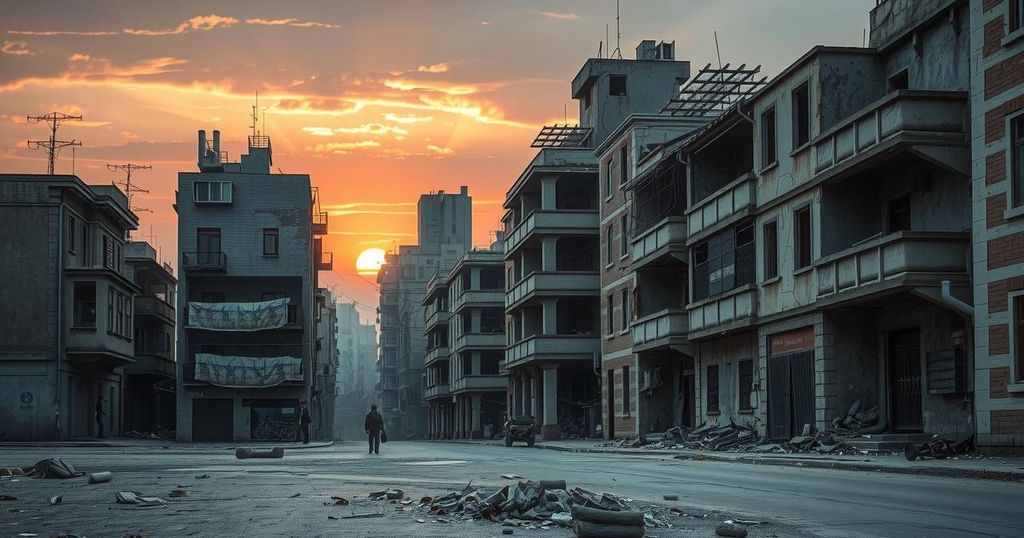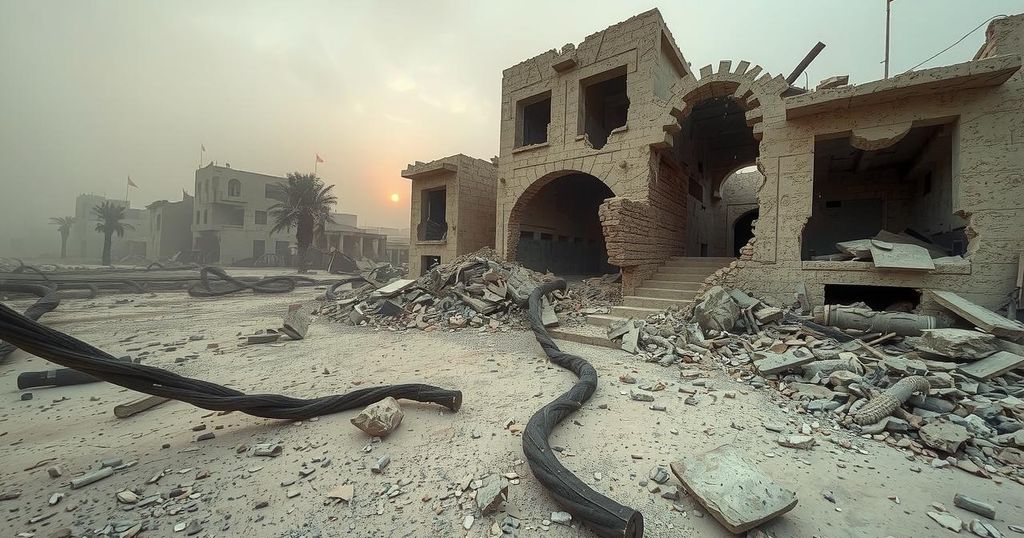The article sheds light on the complex humanitarian crisis in Sudan following recent military actions in Khartoum. With the SAF recapturing territory, local responders play a crucial role in delivering aid, despite facing significant challenges. The entrenched position of the RSF suggests that the conflict is far from over, highlighting the urgent need for international pressure to facilitate humanitarian assistance and address the dire situation of civilians.
The article discusses the ongoing conflict in Sudan, particularly the recent developments in Khartoum, where the Sudanese Armed Forces (SAF) regained control from the Rapid Support Forces (RSF). Despite this military gain, the author indicates that the humanitarian crisis in Sudan is dire, with significant destruction to infrastructure and an urgent need for aid. Grassroots efforts from local responders are crucial, yet they are threatened by violence and lack of resources, with many already having lost their lives amid the fighting.
Khartoum, a city once flourishing, is now left in ruins, with residents displaced and basic needs unmet. Humanitarian organizations report that two-thirds of the population require assistance, a situation made worse by the SAF’s military actions. Analysts suggest that while the SAF’s control may allow for some humanitarian aid to flow back, the overarching need is vast and complex, calling for more than just sporadic assistance.
Political scientists and local analysts warn against the assumption that military victories will translate into peace. They emphasize the entrenched nature of the RSF in regions like Darfur and their capability to operate as a parallel authority. The potential for renewed hostilities is significant, particularly as the RSF has not disappeared but instead may solidify its power in other areas.
The article highlights the grim reality for civilians in conflict zones, where escaping violence often comes at great risk. It calls attention to the severe access restrictions faced by humanitarian organizations and the need for international pressure on both conflicting parties to ensure aid flows without politicization. Experts argue that the geopolitical implications of the conflict complicate the resolution process, with various external influences at play.
Ultimately, while the SAF may have gained territory, the path to peace remains fraught with challenges. Displaced civilians continue to suffer, and without a robust international response, the humanitarian crisis will likely worsen. The message is clear: urgency and sustained pressure are necessary to safeguard civilians caught in the crossfire of this protracted conflict.
In summary, the situation in Sudan, particularly in Khartoum, highlights a multifaceted humanitarian crisis exacerbated by ongoing military conflict and political instability. Despite the SAF’s recent territorial gains, the needs of the civilian population remain critical, with grassroots organizations playing a vital role. The entrenched presence of the RSF and increase in hostilities caution against any assumptions of immediate peace. Urgent international response and support for humanitarian efforts are necessary to alleviate the suffering of the Sudanese people amidst the conflict.
Original Source: www.arabnews.com




